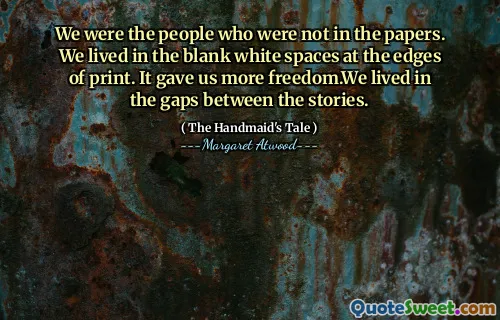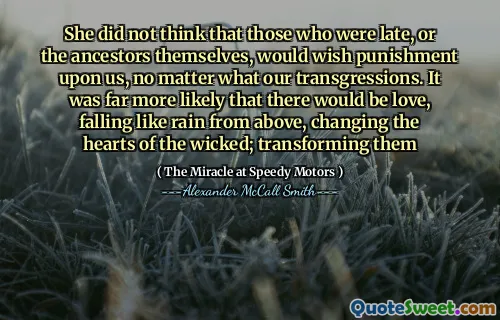Maybe none of this is about control. Maybe it isn't really about who can own whom, who can do what to whom and get away with it, even as far as death. {...} Maybe it's about who can do what to whom and be forgiven for it. Never tell me it amounts to the same thing.
In "The Handmaid's Tale," Margaret Atwood explores provocative themes surrounding power dynamics and moral authority. The narrative suggests that the essence of human interactions may extend beyond mere control or ownership of others. Rather than focusing solely on domination, the story raises questions about accountability and the capacity for forgiveness in relationships, even amidst extreme circumstances like death.
This perspective emphasizes the complexities of human behavior, proposing that the ability to be forgiven for actions holds as much significance as controlling others. Through the characters and their experiences, Atwood illustrates that the moral implications of actions often surpass the desire for power, suggesting a deeper understanding of human connection and redemption beyond simple transactional relationships.




